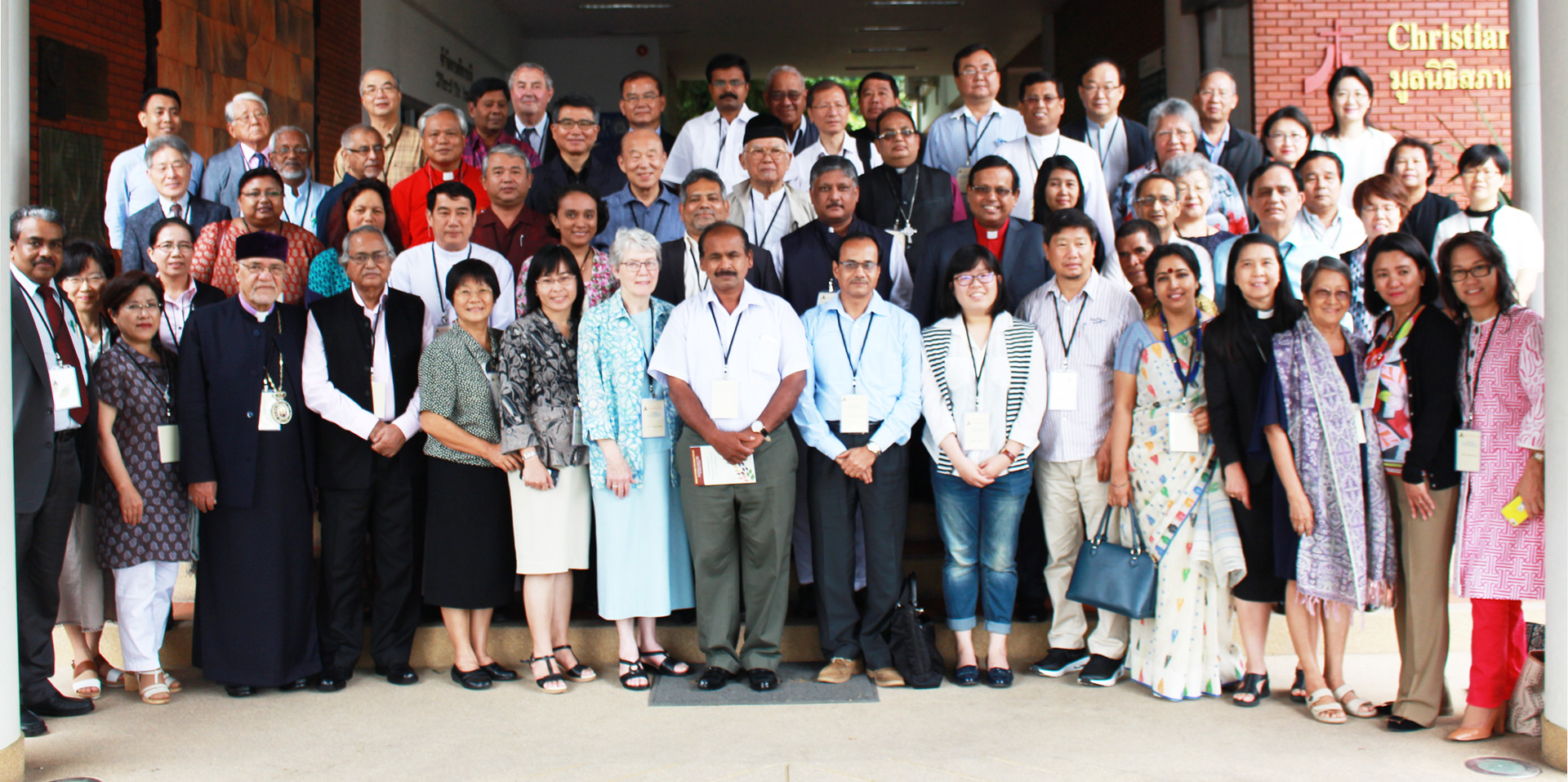Ecumenical consultation affirms revitalisation of the Asian ecumenical movement
 Participants of the international consultation on ‘Towards Revitalising the Ecumenical Movement in Asia’.
Participants of the international consultation on ‘Towards Revitalising the Ecumenical Movement in Asia’.
“Churches and ecumenical councils in Asia must constantly engage in dialogue with each other and ensure a renewed commitment, as well as a shared vision in order to revitalise the Asian ecumenical movement,” stated the General Secretary of the Christian Conference of Asia (CCA), Dr. Mathews George Chunkara at the opening session of an international consultation on ‘Towards Revitalising the Ecumenical Movement in Asia’.
Organised by the CCA, as a prelude to its Diamond Jubilee celebrations, the consultation is being held on 11-12 July 2017 at the CCA headquarters in Chiang Mai, Thailand and is attended by sixty (60) selected church and ecumenical leaders representing various churches, councils, and Asian and global ecumenical organisations.
Delivering the thematic address on ‘CCA @ 60 and Beyond: Challenges to the Asian Ecumenical Movement’, the CCA General Secretary said, “What we experience today in Asia is a lack of coherence and coordination within the ecumenical movement.”
“In a continent where the number of Christians is profoundly small, division makes Christian witness still more difficult, less effective and more fragmented. In such a situation, concerted efforts for dialogue and communication with mutual accountability should be a priority, in order to address the emerging challenges more efficiently.”
“The need for regaining lost vision in our ecumenical journey should be a priority of all those who are concerned with the mission and witness,” said Dr. Mathews George Chunakara.
“Ecumenism is a journey that God has called us to undertake in doing his will for the final purpose he has for the world. The main purpose and goal of our common journey thus remains the search for unity – in order that the world may believe in the view of the unity of the whole cosmos as the reason and final goal of eschatological expectation,” said Dr. Ioan Sauca, Deputy General Secretary of the World Council of Churches (WCC) in a thematic address.
The WCC Deputy General Secretary also placed a strong emphasis on nurturing ecumenical formation as a priority of the churches. “Unless we listen to our children, we cannot hope to move the ecumenical movement forward,” he added.
In various sessions of the consultation, panelists shed light on domineering challenges for which ecumenical responses are warranted in Asia.
While sharing experiences of the Philippines peace process and the churches’ contributions towards peacebuilding, the General Secretary of the National Council of Churches in the Philippines, Rev. Rex R. B. Jr said, “The systems and powers of the world come together to regularly plan how they can remain dominant, while the people of the Philippines continue to suffer and long for peace.”
Speaking on the shift in policies in the Korean Peninsula, the General Secretary of the Presbyterian Church in the Republic of Korea, Rev. Dr. Jae Chron Lee said, “As the people are gradually coming together in support of the Korean unification, the perspective of the South Korean government is also changing. However, the issue of how we can reconcile different approaches towards peacebuilding still remains an important factor.”
“The changing perceptions of preferential treatment to certain religions, especially the attitude of the Indonesian government, is a major concern for religious minorities in the country. Indonesian churches have developed inter-religious programmes to respond to discrimination based on ethnicity and religion,” the Associate General Secretary of the Communion Churches in Indonesia (CCI), Rev. Krise Anki Gosal said in a presentation on religious freedoms in Indonesia.
The deliberations of the second day of the consultation will address issues, such as migration and human trafficking, ecumenical theological education, and being the Church in Asia today.
The international consultation precedes the annual CCA Executive Committee meeting to be held on 13-15 July 2017.











